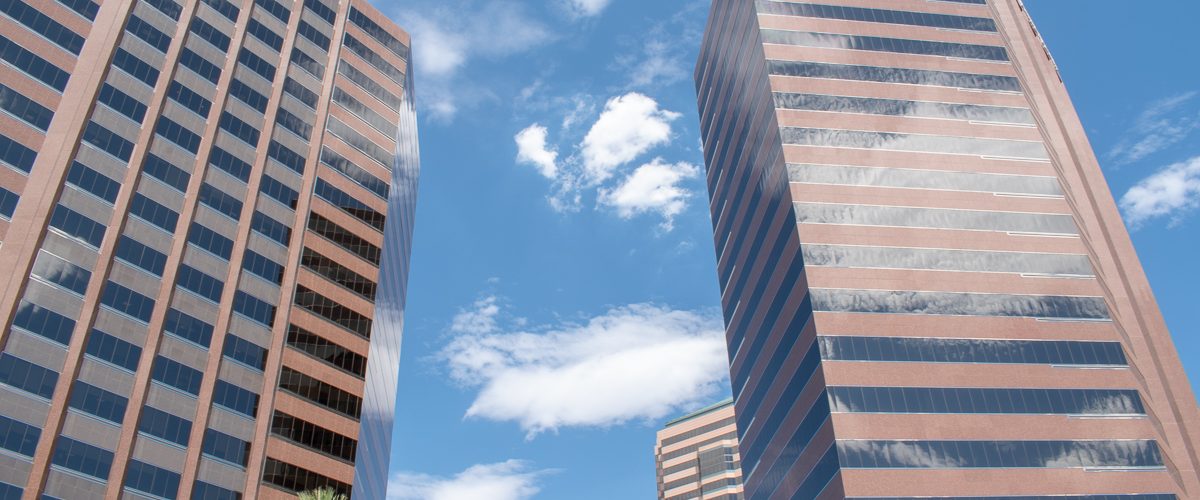Arizona is coming off a huge 2018 in terms of growth. The state has been on a steady incline in some major areas including wages, jobs, small businesses, tech expansion, business development, and more. Companies including Raytheon, Oscar Health, and Intel are expanding their campuses, Tucson has become a breeding ground for self-driving vehicle technology, and the Phoenix real estate market is literally rising higher than other major parts of the country. So, what gives?
According to Paychex-HIS Markit, Phoenix had the biggest bump to small-business wage growth in recent years among the major metropolitan cities in the country, with a boost of more than half a percent. Mix that in with relatively affordable commercial real estate, ample room to roam, enviable weather, and a workforce ready to go, and you have the perfect combination attracting businesses to either grow here grassroots-style or expand from other parts of the country or world. The Greater Phoenix area, for example, welcomed 42 new businesses and three corporate headquarters in 2018, representing more than $1.18 billion in capital investment and creating more than 8,600 jobs.
“Arizona is scaling a thriving innovation ecosystem. The state has been continuously recognized as the best place to launch, test and scale new ideas,” said a spokesperson at the Arizona Commerce Authority. “While Arizona is home to one of the top five largest metropolitan areas in the country, our operating costs are significantly lower than other major markets. The state has one of the lowest corporate tax rates in the country at 4.9%, 4th lowest among states with said tax.”
Recently, Forbes took notice of Arizona’s positioning in jobs and businesses with its end-of-year listing of states on the rise. Arizona improved six spots from the previous year to 17th overall and is projected to keep climbing. The publication looked at 41 variables in six areas; labor supply and growth prospects among them.
“Arizona’s economy is expected to expand at the second-fastest rate in the U.S. through 2022,” the December report noted, based on forecasts for jobs and income.
Arizona has also been gaining attention from business owners, venu=ture capitalists and entrepreneurs for its reduction in regulatory burdens, competitive tax environment, and burgeoning tech- and engineering-focused workforce. What’s more, Arizona is centrally located to Mexico, California and Texas, making it a prime geographic landing spot with low-cost operating. This has opened up the pocketbooks of businesses, so they can invest in other areas of their operations.
One more benefit Arizona has going for it is higher education. More than 40 universities and educational institutions, such as technical schools, are producing highly skilled workers, and with an average age of 35 years old, Arizona’s population ranks as one of the youngest in the nation, all coming together to attract businesses looking for long-term employee investment.
While some of the major wins in business expansion can already be seen in new offices and buildings, or added tech sector jobs already pouring in, it’s the long-term outlook that is speaking volumes about Arizona’s future. Microsoft, for example, bought up a sizable chunk of land in the far west valley. What they’ll do with it is unknown as of now, but that’s a good sign for the state in tech-related job growth and boosting the economy in years to come.
“In recent years, Arizona has been nationally recognized for growth in the technology sector. In addition, manufacturing and business and financial services are highly visible industries in our state. Bioscience and health care are also quickly emerging as a high-growth sector in Arizona,” added the ACA spokesperson.
















Add comment